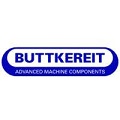
Posted to News on 3rd Dec 2013, 14:26
Big data in manufacturing - how to make it work
Sue Roche, Business Unit Manager at SolutionsPT, looks at how some manufacturers are already using 'big data' and why more need to embrace it.

'Big data' generally refers to a set of information so large and complex that conventional database management tools or traditional data processing applications cannot cope. So, how can we realise its potential and make it work for our manufacturing industry?
The American National Security Agency claims to collect call records at a staggering rate of three billion a day and is alleged to be building a surveillance and storage capability with the space for 500 years' worth of communications. Truly BIG data. And, while the numbers associated with data collection and analysis in industrial environments are nowhere near that level, they can still be mind-boggling. Your average manufacturing site easily generates tens of millions of data points every day and can require this data to be stored for many years.
Big data collected via SCADA
Manufacturers are not generally known for their willingness to embrace new, cutting-edge technologies; however, many are embracing the use of SCADA systems and process data historians to collect the huge volumes of data that are essential for the visualisation and effective running of process plants. SCADA systems and data analysis programmes are routinely used in manufacturing to not only handle millions of data points every minute, but also to identify problems in production.
These technologies alert us to when a manufacturing line or industrial plant might be trending off specification. Operators can then drill down into the data to troubleshoot or carry out root cause analysis.
Manufacturing data tends to be structured and time-sequenced, which makes this analysis fairly straightforward. But with the rise of disparate data sources and the use of search engine-based technologies to interrogate unstructured data, dashboard-style mash-ups are becoming increasingly available. It will not be long before this same sort of technology is commonplace in many industrial and commercial applications and improving our day-to-day experience.
Big data helps to raise manufacturing output by 75 per cent
One of SolutionsPT's major customers, a biochemical manufacturer, has been using a process data historian for some years, collecting data from seven of its gateway servers every 15 seconds. This equates to more than 75 million data points collected every day. This data is then used to create dashboards that enable the monitoring of batches and the optimisation of processes, and has been instrumental in improving the efficiency of the site and increasing output by 75 per cent, which is an excellent illustration of the benefits offered by big data in manufacturing.
But not all manufacturers are using their data as strategically, and are therefore missing out on advantages that big data offers manufacturers. Many companies have already invested in a data infrastructure but do not realise the extent of the data they are currently collecting and how it could be analysed and applied for business improvement. Simply put, they have a huge data asset that they are not making the most of. In these harsh economic times, where the emphasis is on increasing productivity without increasing capital investment, it would make sense to squeeze as much benefit from this data asset as possible.
Analysis of data intelligence
Indeed there is an increasing view that analysis of data intelligence will be one of the key factors to differentiate the more successful organisation in future. This is particularly true for manufacturers which face their own specific set of challenges, where many are fighting for survival not only against their competitors, but sometimes internally against other plants and sites based in other countries which enjoy lower cost bases.
Therefore, it would be advantageous to secure the support of an industrial IT specialist to help employ the data from their process data historian to achieve a competitive edge. This can often be achieved by auditing and assessing your current data infrastructure or specifying these systems from scratch. The appropriate tools can then be introduced to analyse, report and present the data as useful information and disseminate as appropriate to the wider organisation.
By making information available to operators, SolutionsPT can help employee engagement and drive improvements. The easy availability and analysis of data can transform the way a company works and enable a manufacturer to better understand the plant, and predict and manage performance. With so much of this data already available and locked in process data historians, accessing could be a lot easier than you think.
For further information about managing and using big data in manufacturing, go to www.wonderware.co.uk.
Unit 1, Oakfield Road
Cheadle Royal Business Park
SK8 3GX
UNITED KINGDOM
+44 (0)161 495 4600






























